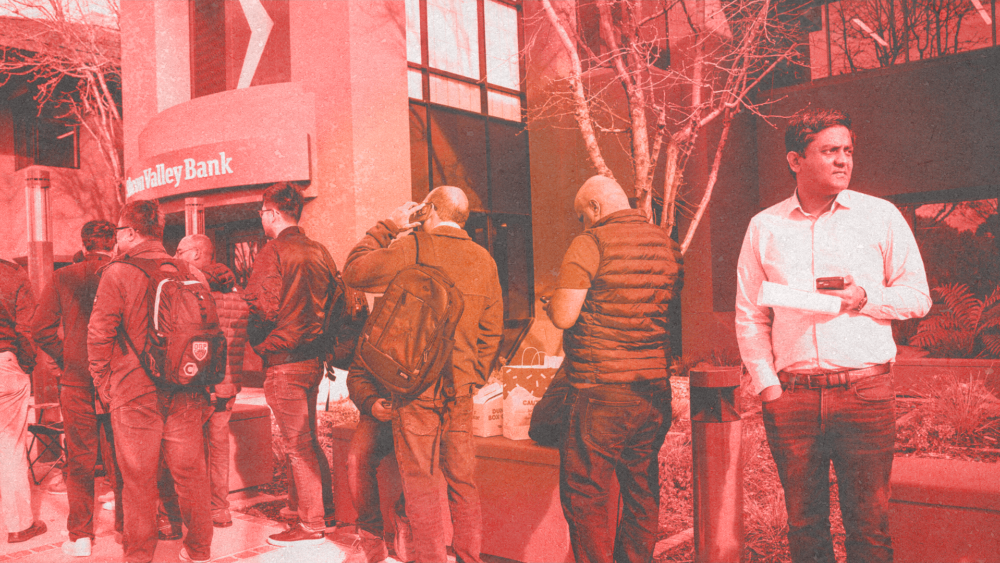The banking system we take for granted is unfixable. The good news is that we no longer need to rely on any private, rent-seeking, socially destabilizing network of banks, at least not the way we have so far
The banking crisis this time is different. In fact, it is worse than in 2007-08. Back then, we could blame banks’ sequential collapse on wholesale fraud, widespread predatory lending, collusion between ratings agencies, and shady bankers peddling suspect derivatives – all enabled by the then-recent dismantling of the regulatory regime by Wall Street-bred politicians, like US Treasury Secretary Robert Rubin. Today’s bank failures cannot be blamed on any of this.
Yes, Silicon Valley Bank had been foolish enough to assume extreme interest-rate risk while serving mostly uninsured depositors. Yes, Credit Suisse had a sordid history with criminals, fraudsters, and corrupt politicians. But, unlike in 2008, no whistleblowers were silenced, banks complied (more or less) with the post-2008 beefed-up regulations, and their assets were relatively solid. Moreover, none of the regulators in the United States and Europe could credibly claim – as they did in 2008 – to have been blindsided.
In fact, regulators and central banks knew everything. They enjoyed full access to the banks’ business models. They could see vividly that these models would not survive the combination of significant increases in long-term interest rates and a sudden withdrawal of deposits. Even so, they did nothing.
Did officials fail to foresee herd-like panic-stricken flight by large, and thus uninsured, depositors? Perhaps. But the real reason central banks did nothing when confronted by banks’ fragile business models is even more disturbing: It was central banks’ response to the 2008 financial crash that had given birth to those business models – and policymakers knew it.
The post-2008 policy of harsh austerity for most and state socialism for bankers, practiced simultaneously in Europe and the US, had two effects that shaped financialized capitalism over the last 14 years. First, it poisoned the West’s money. More precisely, it ensured that there is no longer a single nominal interest rate capable of restoring the balance between money demand and money supply while also averting a wave of bank failures. Second, because it was common knowledge that no single interest rate could achieve both price stability and financial stability, Western bankers assumed that, if and when inflation reared its head again, central banks would increase interest rates while bailing them out. They were right: this is precisely what we are witnessing now.
Faced with the stark choice between curbing inflation and saving the banks, venerable commentators appeal to central banks to do both: to continue hiking interest rates while continuing with the post-2008 socialism-for-bankers policy, which, other things being equal, is the only way to stop the banks from falling like dominoes. Only this strategy – tightening the monetary noose around society’s neck while lavishing bailouts on the banking system – can simultaneously serve the interests of creditors and banks. It is also a surefire way to condemn most people to unnecessary suffering (from avoidably high prices and preventable unemployment) while sowing the seeds of the next banking conflagration.
Lest we forget, we have always known that banks were designed not to be safe, and that, together, they comprise a system constitutionally incapable of abiding by the rules of a well-functioning market. The problem is that, so far, we had no alternative: Banks were the only means of channeling money to the people (through tellers, branches, ATMs, and so forth). This turned society into a hostage of a network of private banks that monopolized payments, savings, and credit. Today, however, technology has furnished us with a splendid alternative.
Imagine that the central bank provided everyone with a free digital wallet – effectively a free bank account bearing interest equivalent to the central bank’s overnight rate. Given that the current banking system functions like an antisocial cartel, the central bank might as well use cloud-based technology to provide free digital transactions and savings storage to all, with its net revenues paying for essential public goods. Freed from the compulsion to keep their money in a private bank, and to pay through the nose in order to transact using its system, people will be free to choose if and when to use private financial institutions offering risk intermediation between savers and borrowers. Even in such cases, their money will continue to reside in perfect safety on the central bank’s ledger.
The crypto brotherhood will accuse me of pushing for a Big Brother central bank that sees and controls every transaction we make. Setting aside their hypocrisy – this is the same crew that demanded an immediate central-bank bailout of their Silicon Valley bankers – it bears mentioning that the Treasury and other state authorities already have access to each transaction of ours. Privacy could be better safeguarded if transactions were to be concentrated on the central bank ledger under the supervision of something like a “Monetary Supervision Jury” comprising randomly selected citizens and experts drawn from a wide range of professions.
The banking system we take for granted is unfixable. That’s the bad news. But we no longer need to rely on any private, rent-seeking, socially destabilizing network of banks, at least not the way we have so far. The time has come to blow up an irredeemable banking system which delivers for property owners and shareholders at the expense of the majority.
Coal miners have found out the hard way that society does not owe them a permanent subsidy to damage the planet. It is time for bankers to learn a similar lesson.
This article originally featured on Project Syndicate and has been republished with permission.
Do you want to be informed of DiEM25's actions? Sign up here










